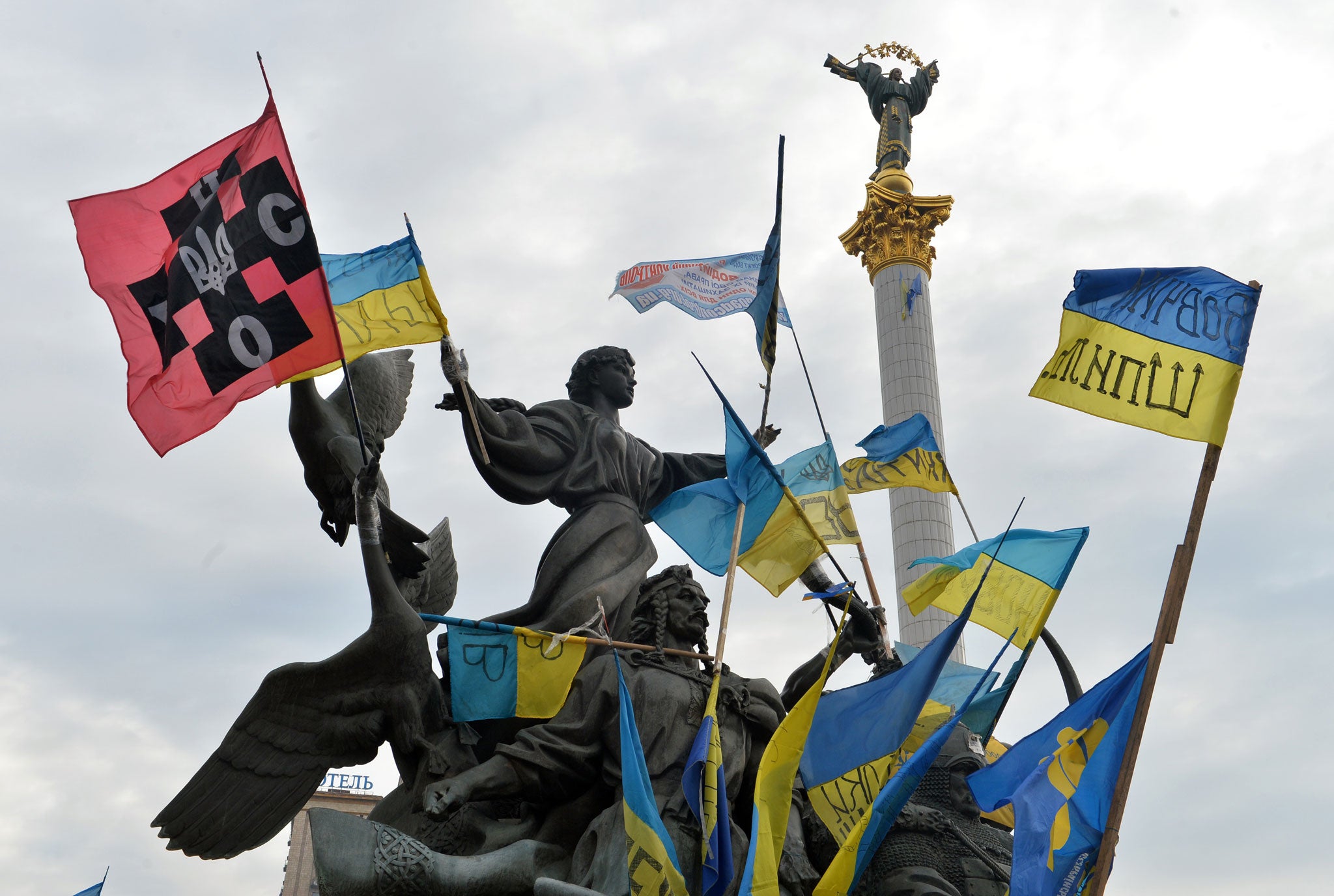Divisions exist but a sense of Ukrainian national identity is still strong
It’s too simple to describe this crisis as a case of east vs west


In the turmoil that led to the ousting of President Yanukovych, there were dark warnings from the West of imminent civil war and even the division of the country. Maps charted the dividing line between the eastern – Russian-speaking and Yanukovych-voting provinces and the western, Ukrainian-speaking pro-Europeans. What looks simple on paper, on the screen, or by the voting figures, is far more complicated on the ground.
Ukraine is not like, for instance, the former Czechoslovakia, where the Czech and Slovak lands were clearly demarcated and already enjoyed much autonomy. Ukraine, for all its divisions, is a unitary state. Many families would be hard put to it to describe themselves as all one or all the other. This is why the figures for Russian- and Ukrainian-speakers are so hard to establish. A 60-40 split with Ukrainians in the majority ignores the reality that many people have dual loyalties.
Nor are sympathies so clear cut as between alignment with the EU and alignment with Russia. The notion that the eastern part might split off and somehow become federated again with Russia disregards the strong sense of Ukrainian identity, which has only been reinforced since the vote for independence in 1991. Then – to widespread relief – there was a majority for independence across Ukraine, east and west, north and south, and that has not really changed.
This does not mean that there are not sharp differences between east and west, between the two language groups. Some are cultural and religious; others are practical. The east is heavily industrialised and far more reliant than the west on Russia for exports and energy. For this part of Ukraine, the Soviet-era trade system remains largely in place, and these structures cannot be disentangled overnight. They are dictated by the past and by geography, not only by politics.
Russia is not wrong when it warns Ukraine of the economic harm that would be done if it turned west precipitately. Nor is it wrong to warn of the sacrifices that Ukraine will have to make if it wants eventually to join the EU. It is a poor country – significantly poorer in terms of per capital GDP than Russia. This does not mean eventual EU membership is impossible, but it is a long way ahead.
If there are divisions within Ukraine over EU membership, they relate to the speed, rather than the actual objective. Although widely seen in the West as “pro-Russian”, Yanukovych went out of his way after his election to say that he saw Ukraine’s future in the EU. He was arguably more realistic than his predecessor and Orange Revolution leader, Viktor Yushchenko, in realising the gap that Ukraine had to make up, and the economic ties that bound it to Russia – as, it might be said, an eastern Ukrainian would be.
It is also too simple to describe the protests that erupted in November as east versus west. Yes, they began as a response to Yanukovych’s decision to accept a Russian bail-out rather than the EU association agreement that came with no jam today, and precious little tomorrow. This came as a huge disappointment for those many Ukrainians who saw their country’s future as European.
But those first protests soon evolved into something else – a gathering uprising - largely because of the brutal way in which the authorities dealt with them and then tried to legislate to curtail rights. Calls for the President to go polarised the country again, with his supporters arguing – correctly - that he had been democratically elected and that attempts to topple him from the street amounted to rule by the mob, and a coup.
The use of force – however it came about, which is still not at all clear – changed the equation once again, with Ukrainians uniting to deplore the deaths. For some, but not for all, this removed Yanukovych’s legitimacy, and may give the erstwhile opposition some breathing space to preside over the transition to new elections.
There remain, though, two starkly different versions of events. The one decrying the illegal removal of a democratically elected head of state; the other insisting that he forfeited his right to rule and lauding the power of “the people”. And while the first has dominated Western media coverage; the second is the one that prevails on the airwaves of eastern Ukraine and Russia. The test for those trying to govern Ukraine in the run-up to planned elections in May will be whether they can keep this divide in the political domain, and prevent it spilling back on to the streets. With four opposition leaders, including Yulia Tymoshenko, likely to be jostling for power, it is hard to be optimistic.
Why a new Ukraine is the Kremlin's worst nightmare
This crisis is about what's best for Ukraine, not Russia
Ukraine is a country divided against itself. Watch out, Scotland
Join our commenting forum
Join thought-provoking conversations, follow other Independent readers and see their replies
Comments
Bookmark popover
Removed from bookmarks